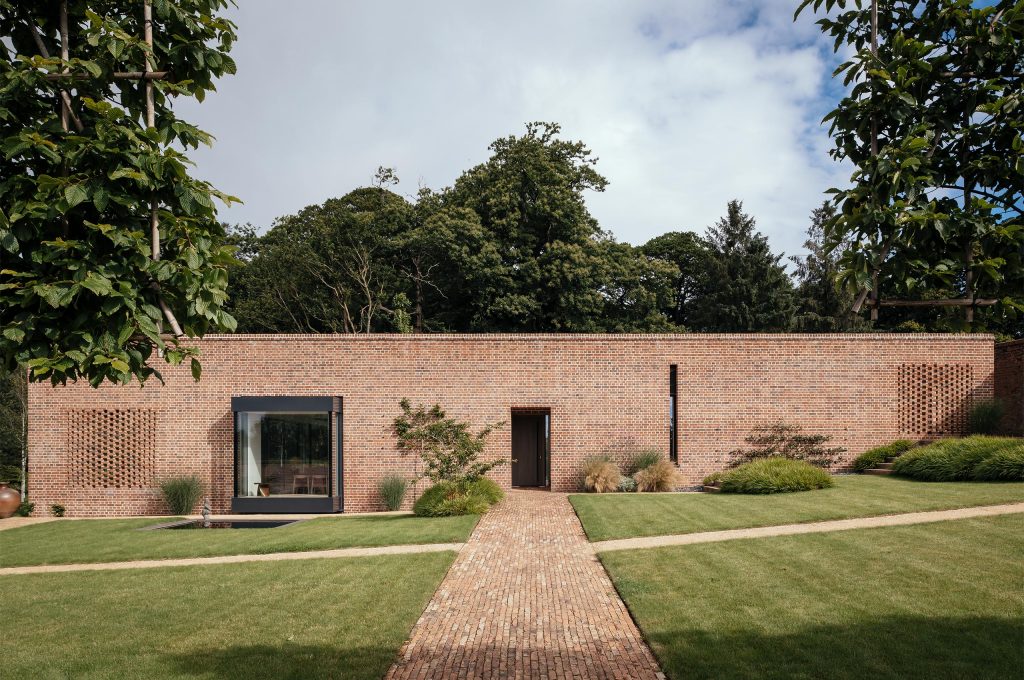“With such indifference at the helm of the RIBA awards process, what hope is there for seeing the rapid change demanded by the RIBA 2030 challenge?”
.
Last night, the RIAB House of the Year was announced by Kevin McCloud:
Grand Designs: House of the Year 2021 x RIBA winner announced | housebeautiful.com
Not everyone was impressed, though, reports Devon Live this morning:
Grand Designs: Devon house misses out on House Of The Year | devonlive.com
The disappointment is partly due to there being two Devon properties in the long list of finalists.
The first was a former barn:
Within a typology of barn conversions, this place is approaching work-of-art status. It tells a wonderful story of family ambition with father, son and partner working hard with vision and restraint.
The Outfarm | architecture.com
This “ancient crumbling farm building” turned 21st-century barn conversion in deepest Devon is home to Richard and Dawn who fell for its romantic charm eight years ago. Kevin described the property as a “barn conversion like no other” with “agricultural echoes”.
The second was the subject of a talk last spring:
Cafe Scientifique: Passivhaus Construction
And featured on these pages last summer:
With more from the architect’s perspective:
Linear brick wall conceals earthy and tactile interiors of Devon Passivhaus

mcleanquinlan.com/works/devon-passivhaus
Many commentators have praised not only its architectural qualities and how it blends into the landscape – but its very high sustainability standards:
Only one of the 20 projects longlisted for the RIBA House of the Year 2021 achieved an A-rated energy performance certificate according to research by British studio Hawkes Architecture. The research revealed that nine of 20 longlisted projects received a B-rated energy performance certificate (EPC), while the remaining projects were C, D and E-rated. An EPC is a measure of the overall efficiency of a home, for which the best rating is A and the worst is E.
The only longlisted project to receive an A-rated EPC was the Devon Passivhaus, a low-lying brick home in Devon by McLean Quinlan that performs to the highly energy-efficient Passivhaus standard.
“The findings arising from the research have been more profound than even we thought,” said the studio’s founder Richard Hawkes. “My hope is that it might help shift the focus onto sustainability in a more meaningful and substantial way than has been the case thus far,” he told Dezeen.
“With such indifference at the helm of the RIBA awards process, what hope is there for seeing the rapid change demanded by the RIBA 2030 challenge?” he asked.
In response to the research, the chair of the RIBA Awards Group Denise Bennetts said that “there has long been a sustainability requirement” for all of RIBA’s award programmes and that all entries undergo “rigorous assessment and interrogation”. “To establish more clarity and consistency in our assessment, as well as alignment with the RIBA’s 2030 Climate Challenge, our updated entry requirements are even clearer about how projects should demonstrate their credentials on elements such as energy in use, embodied carbon and water use,” Bennetts added.
Only one of 20 RIBA House of the Year longlisted projects achieved top sustainability grade
With more on those standards here:
2030 Climate Challenge | architecture.com
And more from the Royal Institute of British Architects good intentions here:
To finish, a video of the inhabitants of the Devon Passivhaus:
UK Passivhaus Awards 2021: Small Projects – Devon Passivhaus (Passive House) – Passivhaus Trust